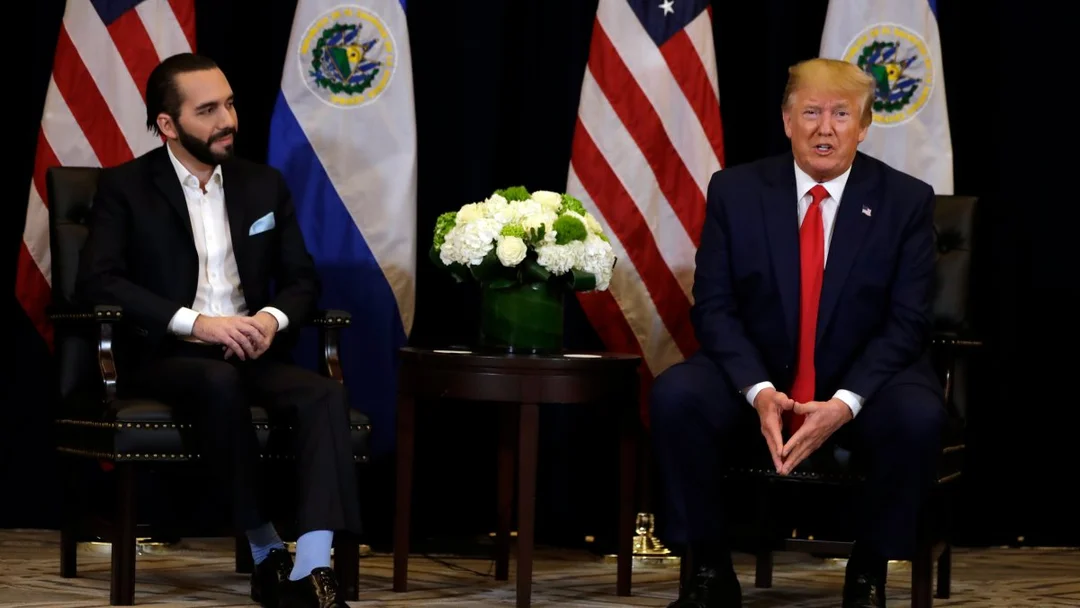
Power and Prisoners: Inside President Bukele’s Controversial White House Visit
On Monday, President Donald Trump will welcome Nayib Bukele, El Salvador’s charismatic and polarizing leader who famously calls himself the “world’s coolest dictator,” to the White House. This summit marks not just a diplomatic milestone—the first official Oval Office invitation for a Latin American leader since Trump took office—but also a pivotal moment in America’s ongoing struggle with migration, crime, and international human rights scrutiny.

The heart of the meeting beats to a controversial tune: a sweeping new deportation policy that has flown hundreds of alleged Salvadoran and Venezuelan gang members from U.S. soil directly into the squalid halls of El Salvador's 'mega prison', CECOT. What’s unfolding is much more than a migration dispute—it’s a test of international law, human rights, and pragmatic geopolitics, with the world watching.
Bukele, who rose to power on anti-corruption fervor in 2019 and was re-elected by landslide in 2024, has upended El Salvador’s reputation. His bold, hardline measures—most notably a sweeping state of emergency yielding 85,000 arrests with only 1,000 convictions—have demolished homicide rates from over 2,000 in 2019 to a mere 114 last year. The cost? According to NGOs like Human Rights Watch and Cristosal, thousands of innocent Salvadorans allegedly remain behind bars, their due process bypassed in the name of swift justice.

The Trump administration has vigorously embraced Bukele, touting his readiness to do "everything the United States has required"—from accepting deported migrants en masse to offering controversial prison space for individuals the U.S. labels as gang-affiliated. The method: invoking the obscure 1798 Alien Enemies Act to justify “wartime” deportations, but often relying on tenuous evidence, such as tattoos or types of clothing, to link deportees to notorious gangs like MS-13 or Tren de Aragua.

The practice has drawn sharp rebukes both at home and abroad. Human rights organizations call these acts "forced disappearances" to prisons "known for abusive conditions." The U.S. Supreme Court recently tried to balance the administration’s authority with due process by ordering deportees to be granted legal rights—while allowing further deportations to proceed. A recent, high-profile case involves Kilmar Armando Abrego Garcia, a Maryland resident mistakenly deported to El Salvador despite court protections—an error the Trump administration labeled “administrative.” The Justice Department rebuffed calls to intervene, citing presidential primacy in international affairs.
Yet, for many Salvadorans living in fear of the once-rampant gang violence, Bukele’s tactics appear to be working. His approval hovers around 80%, and international recognition has followed. The U.S. State Department even upgraded El Salvador’s travel rating, now above most European countries, acknowledging safer streets as a direct result of the gang crackdown.

Monday’s White House talks point to even deeper cooperation, with leaders expected to discuss further migration controls, tariffs, and the controversial proposal for El Salvador to detain "dangerous" American criminals. The big question: at what cost to human rights and democratic norms does such pragmatic security come?
As these policies play out under international eyes, the legacy of Trump and Bukele’s partnership could shape the direction of both countries for years to come. What do you think: Should national security ever trump due process? Share your perspective in the comments below.